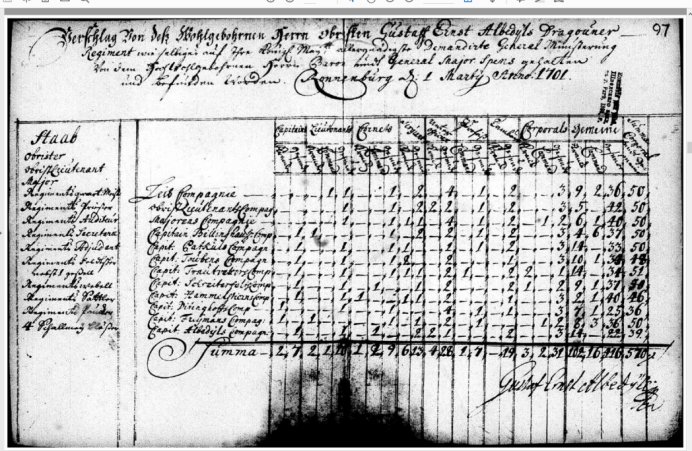Topic: Archives
Governor General Horn stated that in his view it would be best to discuss the pros and cons. Charles XI had in his letter emphasized the importance of relieving Stettin and as the city had now fallen. Should the army march anyway?
The Councillor of the Realm Fleming said that he had been invited, but felt this was really a question for the Governor General (who was also a Field Marshal) and the generals. However, as the fall of Stettin had changed the situation considerably it was important to carefully consider the options.
The secretery Segebaden read a letter from the King of Poland, who asked that Courland shouldn't be harmed as the army passed through. Segebaden also read a letter from the King to ambassador Lilliehöök, in which the former stated that what can be done today will be impossible tomorrow. If the Swedish army had marched in November 1677 it would have taken a few towns in Prussia and the Lithuaninan army had not been prepared to stop it. The Elector would also have been forced to abandon the siege of Stettin. Now it was too late and there was no chance for any sort of success. The Lithaunian army under the command of Hetman Pac was in Samogitia and all of the nobility was under arms.
To be continued...


